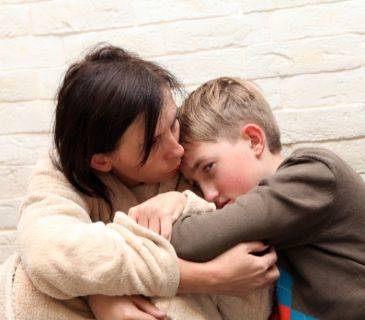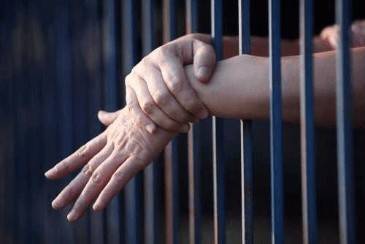The post Can a juvenile be tried as an adult in Fremont County, CO? appeared first on Colorado Springs Attorneys.
]]>The Juvenile Justice System in Fremont County
Fremont County, like many jurisdictions across the United States, operates a separate juvenile justice system distinct from the adult criminal justice system. This approach aims to address the unique needs and circumstances of minors who find themselves entangled with the law. However, there are situations where the severity of an offense may prompt the authorities to consider trying a juvenile as an adult.
Determining Factors for Trying Juveniles as Adults
The decision to try a juvenile as an adult is not arbitrary; it is influenced by a set of factors carefully evaluated by the legal system. One crucial consideration is the nature of the offense committed. Serious crimes such as murder, aggravated assault, or sexual offenses are more likely to lead to a juvenile being tried as an adult. The court may also assess the juvenile’s age, criminal history, and the likelihood of rehabilitation within the juvenile system.
Fremont County’s Legal Framework
In Fremont County, the legal framework for trying juveniles as adults is outlined in the Colorado Juvenile Delinquency Act. This legislation provides guidelines for how the juvenile justice system should handle minors accused of criminal behavior. The Act empowers the court to transfer a juvenile’s case to adult court based on specific criteria, ensuring a careful examination of the circumstances before making such a significant decision.
Transfer Hearings
When a juvenile is facing the possibility of being tried as an adult, a transfer hearing is convened to assess the appropriateness of such a move. During this hearing, the court considers various factors, including the seriousness of the offense, the juvenile’s age, criminal history, and any evidence of rehabilitation potential. The prosecution and defense present their arguments, and the court makes a determination based on the information presented.
Prosecutorial Discretion
In Fremont County, the prosecutor holds a significant role in the decision to try a juvenile as an adult. Prosecutorial discretion allows the District Attorney to assess the circumstances surrounding the case and decide whether to file charges in juvenile or adult court. This discretion is not absolute but is guided by legal standards and considerations of justice, public safety, and the best interests of the juvenile offender.
Collaboration with Juvenile Services
Fremont County emphasizes collaboration between the juvenile justice system and juvenile services to ensure a comprehensive approach to rehabilitation and intervention. This collaborative effort aims to address the root causes of juvenile delinquency and provide young offenders with the support and resources necessary for rehabilitation. However, in cases where the severity of the offense warrants adult court proceedings, the legal system takes appropriate action.
Balancing Accountability and Rehabilitation
The juvenile justice system in Fremont County is designed to strike a delicate balance between holding young offenders accountable for their actions and providing them with opportunities for rehabilitation. While rehabilitation is a primary focus within the juvenile system, the severity of certain offenses may necessitate a shift toward adult court to ensure public safety and address the gravity of the crime committed.
Challenges Faced by Juveniles in Adult Court
When a juvenile is tried as an adult, they may encounter a set of challenges that differ significantly from those faced within the juvenile justice system. Adult court proceedings are typically more formal and adversarial, emphasizing punishment over rehabilitation. The legal penalties for adults are often more severe, and juveniles tried in adult court may face the prospect of serving time in adult correctional facilities.
Moreover, the emotional and psychological toll on a juvenile facing adult court can be profound. The adult criminal justice system is not tailored to address the unique needs and vulnerabilities of young offenders. Juveniles may struggle with understanding the legal complexities, and the harsh environment of adult prisons can exacerbate the challenges they face in the transition to adulthood.
Rehabilitation Efforts in Adult Court
While adult court is traditionally punitive in nature, some jurisdictions, including Fremont County, recognize the importance of rehabilitation even in the context of adult proceedings. Rehabilitation efforts within adult court may include counseling, educational programs, and vocational training aimed at facilitating the juvenile offender’s reintegration into society.
However, it is crucial to acknowledge that rehabilitation opportunities within the adult system may be limited compared to the juvenile justice system. The focus tends to shift towards punishment and public safety, leaving less room for the specialized interventions that can better address the underlying issues contributing to juvenile delinquency.
Community Impact and Public Perception
The decision to try a juvenile as an adult is not only a legal matter but also one that can significantly impact the community and public perception. Community members may have varying opinions on the appropriateness of trying juveniles as adults, with some advocating for a more rehabilitative approach and others emphasizing the need for strict punishment.
Public discourse surrounding juvenile justice issues can influence legislative changes and shape the direction of the legal system. It is essential for the community to engage in informed discussions about the factors influencing the decision to try juveniles as adults, promoting a balanced approach that considers both accountability and the potential for rehabilitation.
Navigating the complexities of trying juveniles as adults in Fremont County requires a deep understanding of the legal processes and criteria involved. The Bussey Law Firm, P.C., is committed to providing reliable information and legal guidance to the community, ensuring that individuals facing such circumstances are aware of their rights and the potential outcomes. For more detailed and personalized assistance, contact The Bussey Law Firm, P.C., to schedule a consultation with our experienced legal team. We are here to help you understand the legal intricacies surrounding juvenile justice in Fremont County and advocate for the best possible outcome for your case.
The post Can a juvenile be tried as an adult in Fremont County, CO? appeared first on Colorado Springs Attorneys.
]]>The post Is Underage Drinking Ever Allowed in Colorado? appeared first on Colorado Springs Attorneys.
]]>In short, no and yes.
There are certain very specific situations in which there is an affirmative defense to a person under the age of 21 in Colorado drinking or possessing alcohol. This does not mean that the person is immune from prosecution, but he or she would have an affirmative defense at a trial. Outside of these situations, underage possession or consumption is a strict liability offense. C.R.S. 18-13-122(2)(b)(I).
While all states prohibit underage alcohol consumption, Colorado’s five exceptions are second highest to New Jersey’s six exceptions. In contrast, Idaho has zero exceptions to its prohibition against underage drinking. We explore Colorado’s exceptions below.
5 Affirmative Defenses to Underage Drinking in Colorado
 These exceptions are promulgated within Colorado Revised Statutes § 18-13-122, the same section that prohibits underage drinking. According to these statutes, a person under the age of 21 may consume alcohol…
These exceptions are promulgated within Colorado Revised Statutes § 18-13-122, the same section that prohibits underage drinking. According to these statutes, a person under the age of 21 may consume alcohol…
- On private property (that is, where a person habitually resides and NOT a place of business) with the consent of a parent or guardian in the parent’s presence. In other words, that small glass of wine a teenager is given by a parent on Thanksgiving is completely fine, as long as the property owner AND the parent consent and the parent is present during the consumption. It is implied that the child does not drive afterward.
- For medical or hygienic purposes. This exception (C.R.S. 18-13-122(5)(b)) also includes “confectionaries” or baked goods that happen to have alcohol in them (though these baked goods must also comply with regulations first).
- For educational purposes. Students in college can taste alcohol for a class in the restaurant industry under the supervision of an accredited instructor, but the student must spit out the alcohol after tasting.
- For religious purposes, such as Mass at a Catholic church. This is protected speech pursuant to the 1st Amendment.
- When reporting another minor in need of medical assistance. This is the most complicated exception and requires a showing of the following: one underage person calls 911 to report another underage person in need of medical assistance due to alcohol consumption, provides his or her name to the 911 operator, was the first to make a 911 report, remains on scene until assistance arrives, and cooperates with medical or law enforcement as they arrive. This Good Samaritan defense is intended to encourage young people to call 911 for medical help if necessary, rather than let a friend die or become dangerously ill out of fear of the legal consequences.
Penalties for Underage Drinking
If a young person cannot use any of the five affirmative defenses, he or she has real exposure for a conviction or adjudication, if under the age of 18. If convicted or adjudicated, first-time offenders will receive a fine of up to $100, substance abuse treatment, or both. Did we mention that the alcohol treatment program must be paid for by the defendant? A first offense can also include the collateral consequence of losing a driver’s license for 90 days.
Additional offenses involve mandatory fines, court-ordered treatment, community service, and loss of a driver’s license for even longer – up to a year.
If you or someone you know has a child who has been charged for underage drinking, call our team of attorneys at The Bussey Law Firm, P.C., at (719) 475-2555. We can talk about your case and discuss your options. We understand these situation and do not believe that a single mistake should ruin a teenager’s future.
The post Is Underage Drinking Ever Allowed in Colorado? appeared first on Colorado Springs Attorneys.
]]>The post Can a Criminal Mischief Charge Hurt College Applications? appeared first on Colorado Springs Attorneys.
]]> Criminal mischief occurs where a person “knowingly damages the real or personal property of one or more other persons, including property owned by the person jointly with another person or property owned by the person in which another person has a possessory or proprietary interest, in the course of a single criminal episode”. COLORADO REVISED STATUTE § 18-4-501. This damage can result from relatively minor actions like vandalizing a mailbox or spray-painting a wall to more serious damage such as slashing car tires or breaking storefront windows. The severity of a criminal mischief offense is determined by the value of the damage. For example, damage which is valued at $300 or less can be charged as a class 3 misdemeanor while damage greater than $1000 can be charged as a felony offense. Even if the incident may appear minor in nature, a juvenile adjudication can be damaging to a young person’s future.
Criminal mischief occurs where a person “knowingly damages the real or personal property of one or more other persons, including property owned by the person jointly with another person or property owned by the person in which another person has a possessory or proprietary interest, in the course of a single criminal episode”. COLORADO REVISED STATUTE § 18-4-501. This damage can result from relatively minor actions like vandalizing a mailbox or spray-painting a wall to more serious damage such as slashing car tires or breaking storefront windows. The severity of a criminal mischief offense is determined by the value of the damage. For example, damage which is valued at $300 or less can be charged as a class 3 misdemeanor while damage greater than $1000 can be charged as a felony offense. Even if the incident may appear minor in nature, a juvenile adjudication can be damaging to a young person’s future.
Colleges throughout Colorado and the rest of the country have made questioning an applicant’s criminal background a standard part of their applications. You can read more about the University of Colorado’s admissions policy for applicants with criminal history here and Colorado State University’s similar policy here. These policies potentially apply to all criminal offenses and not just more serious crimes, like violent and/or sexual offenses.
If your child is facing prosecution for a criminal mischief offense or has been charged with a criminal mischief offense, finding representation for your child may help immeasurably in the future. Our team here at The Bussey Law Firm has a breadth of experience representing young people for various offenses, to include criminal mischief. Do not jeopardize your child’s future over a seemingly “minor” incident.
There is no time to waste when it comes to ensuring a proper defense for your child if he or she has been accused of a criminal offense. Call the Colorado criminal mischief attorneys at The Bussey Law Firm, P.C. today at (719) 475-2555 to talk to our team about your child’s case and make sure his or her rights and future are protected.
The post Can a Criminal Mischief Charge Hurt College Applications? appeared first on Colorado Springs Attorneys.
]]>The post Colorado Teenager Arrested on Suspicion of Burglary appeared first on Colorado Springs Attorneys.
]]> A burglary charge is different from shoplifting and robbery. Burglary under Colorado law involves illegal entry into a building with the intent to commit a crime. Criminal acts commonly linked to burglary include theft or assault. The location of the burglary and the type of crime committed will usually affect the severity of the burglary charges.
A burglary charge is different from shoplifting and robbery. Burglary under Colorado law involves illegal entry into a building with the intent to commit a crime. Criminal acts commonly linked to burglary include theft or assault. The location of the burglary and the type of crime committed will usually affect the severity of the burglary charges.
In Colorado, there are three degrees when it comes to burglary charges:
Third-degree burglary: This is when someone breaks into a locked container such as a vault or safe with the intent to commit a crime. Since third-degree burglary simply involves the intent to commit a crime, it usually appeared along with theft. It is a class five felony punishable by one to three years unless the theft involves drugs, in which case the charges may increase to class four felonies.
Second-degree burglary: This is when someone unlawfully enters a building with the intent to commit a crime. Entering a building unlawfully, or entering lawfully and remaining until it is unlawful with the intent to commit a theft or assault is a class four felony. If the building is a residence, the charges increase to class three felony.
First-degree burglary: This is more or less similar to second-degree burglary with the added element of assault or menace to a person. Unlawfully entering a building, threatening someone while inside and committing a crime can result in class three or class two felony charges.
If you are facing burglary charges, it is crucial that you receive a solid legal defense. The penalties for burglary are severe even when the accused is a minor. It is crucial to contact an experienced Colorado Springs criminal defense attorney who will ensure that the defendant’s legal rights are protected.
The Bussey Law Firm, P.C. can help. You can reach us at (719) 475-2555.
The post Colorado Teenager Arrested on Suspicion of Burglary appeared first on Colorado Springs Attorneys.
]]>The post Colorado Lawmakers Introduce Bills to Address Crime in Schools appeared first on Colorado Springs Attorneys.
]]>
That’s why a few lawmakers are attempting to strengthen reporting requirements for schools through new laws introduced in recent months, according to a news report from CBS 4. According to lawmakers who support the new legislation, the rules passed in 2012 to require reporting are weak because they are unfunded and because there is no single, uniform reporting system. The proposed bills aim to change both circumstances in order to improve both the frequency and the quality of reports.
Another representative is supporting a bill that would create more opportunities for intervention before police are called, including treatment, therapy, or education. If implemented effectively, such measures could help reduce the burden on the state’s juvenile courts, reduce criminal charges for young people, and help correct youthful mistakes early, instead of setting students on a downward path.
If your child has been charged with a crime in Colorado, don’t wait: contact an experienced Colorado juvenile crime defense attorney immediately. The team at The Bussey Law Firm, P.C. fights vigorously to protect the legal rights of each client we represent and to pursue the best possible outcome in each case. Contact us today for a free and confidential consultation.
The post Colorado Lawmakers Introduce Bills to Address Crime in Schools appeared first on Colorado Springs Attorneys.
]]>The post How Might a Juvenile Be Sentenced to Jail in Colorado? appeared first on Colorado Springs Attorneys.
]]> Unlike many states, Colorado has two separate systems for keeping young people in confinement if they are found to have broken the law. The Department of Youth Corrections (DYC) is responsible for detaining youths ages 10-18 before trial, as well as those who have been “committed” to detention after being “adjudicated delinquent,” or convicted of breaking a law. Those who fail to appear in court or fail to follow court-ordered sanctions may also be sent to a DYC facility.
Unlike many states, Colorado has two separate systems for keeping young people in confinement if they are found to have broken the law. The Department of Youth Corrections (DYC) is responsible for detaining youths ages 10-18 before trial, as well as those who have been “committed” to detention after being “adjudicated delinquent,” or convicted of breaking a law. Those who fail to appear in court or fail to follow court-ordered sanctions may also be sent to a DYC facility.
DYC facilities are required by law to establish a treatment plan for “committed” juveniles in order to help them get back on the right track after a youthful error. They are also required to evaluate the risk the young person poses to him- or herself and to the community and to place the young person appropriately.
Occasionally, a young person is convicted of an adult felony in Colorado. When this happens, confinement becomes the responsibility of the Colorado Youthful Offender System (YOS). YOS works with juvenile and young-adult offenders who are under age 21 when they are sentenced. Like the DYC programs, YOS works to create a treatment plan that will allow the young people in its care to continue their education and learn productive coping skills that will help them live well in the community once their incarceration has ended.
The post How Might a Juvenile Be Sentenced to Jail in Colorado? appeared first on Colorado Springs Attorneys.
]]>